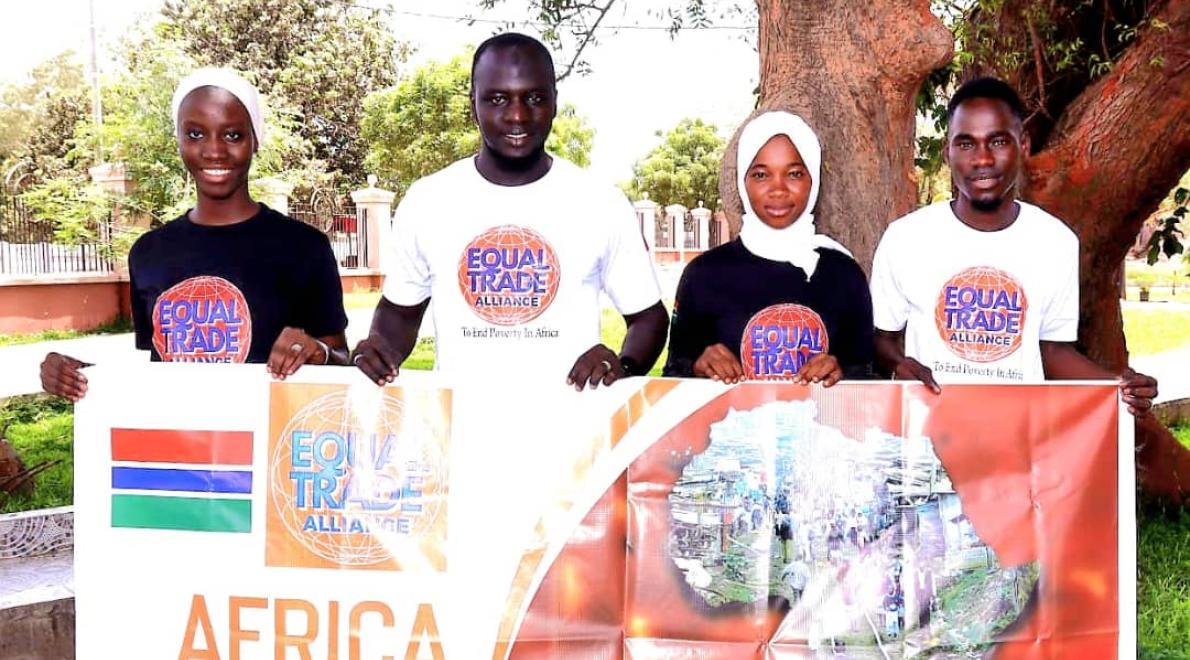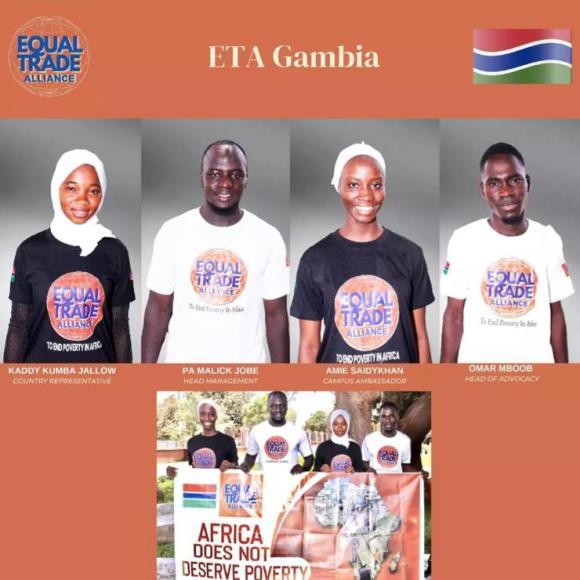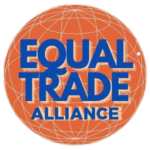Image

The Gambian Equal Trade Alliance team.
Kaddy Kumba Jallow, Pa Malick Jobe, Amie Saidykhan, Omar Mboob

The Gambian Equal Trade Alliance team.
Kaddy Kumba Jallow, Pa Malick Jobe, Amie Saidykhan, Omar Mboob

“Gambian famers don’t get a fair price for their products”, said Accountancy student Amie Saidykhan. “The Gambia produces a lot of cashew, but even though it is the leading export product, it is not making in an impact in the Gambian economy or in the farmers pockets.”
The Gambia is the smallest country in continental Africa. This country’s terrible history of colonialism and slavery was jotted down in the book “Roots” and the eponymous TV-show. Writer Alex Haley is direct descendant of Kunta Kinte, an enslaved Gambian who was abducted from his home country to the United States.
The Gambia is in the top 20 of poorest countries in the world. Though it is not because of the lack of resources. The Gambia is rich in different kinds of nuts, like peanuts and cashew. But also refined petroleum, lumber and (shell)fish.
Student Business and Public Administration Pa Malick Jobe explains that the fishing industry is in the hands of the Chinese. “The Chinese are in charge of Gunjur, the main fishing area in the Gambia, the Gambian people are not profiting from the export of fish.” China is one the major trade partners, for both import (8%) and export (29%). We try to engage politicians into putting a stop to this.
The Gambian Equal Trade Alliance wants to create awareness. They try to attract youths through music and art. They reach out to environmental activists. “You can not do anything without the environment, the ecosystem, the green system. We are one with the environment and we need to act accordingly.”

Pa Malick continues, “here in The Gambia we used to have a lot of Mahogany trees. But due to the export of the Mahogany wood and due to extensive logging, both legal and illegal, this tree species is now rarely found in the Gambia.” It has even come to the point that the African Mahogany tree is now considered endangered.
The students combine their strengths to fight for an equal trade system and are working on a business plan to start with equal and sustainable trade, to help build not only their own careers, but also their communities and their country.
 Equal Trade Alliance The Equal Trade Alliance (ETA) is an innovative movement reshaping the global economic landscape through the principles of equity, sustainability, and shared prosperity. Founded on the philosophy of Ubuntu, ETA’s mission is to foster economic justice by implementing the Equal Trade Certification, a groundbreaking model that challenges the conventional trade system. This model empowers producers in Africa and the Global South by guaranteeing revenue distribution, eliminating exploitative buyer-supplier dynamics, and ensuring sustainable development for millions of Africans. |